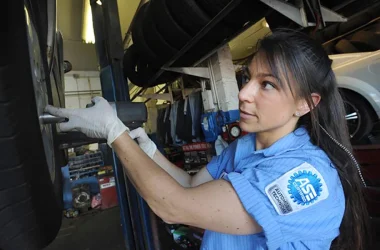Fleet vehicles experience accelerated wear and tear as a result of frequent utilization and extended travel distances. The extensive utilization of this component significantly impacts the torque converter, which is an essential element. This essential element drives the transmission and enhances vehicle efficiency. Implementing the recommended maintenance procedures to prevent torque converter failure in high-mileage fleet vehicles can enhance longevity and optimize overall vehicle performance.
Regular Fluid Changes and Inspections
The quality of gearbox fluid significantly influences the longevity of the torque converter. It is essential for fleet managers to diligently oversee fluid levels and ensure their replacement at designated intervals. This guarantees that the fluid effectively cools, lubricates, and transmits power with optimal efficiency. Over time, factors such as heat, pollution, and friction contribute to the degradation of transmission fluid. Utilize premium fluid and adhere to the manufacturer’s recommended change intervals to prevent converter failure.
Monitoring and Maintaining Fluid Temperature
Heat adversely affects mechanical components such as torque converters. Prolonged elevated temperatures may impose stress on the converter and hasten the degradation of the fluid. It is essential for fleet managers to diligently monitor fluid temperature and respond appropriately. Consistent monitoring of the vehicle’s cooling system is essential to guarantee the optimal functioning of both the transmission cooler and radiator. Implementing auxiliary coolers in high-demand situations is essential for safeguarding converter integrity and ensuring that fluid temperatures remain within the prescribed limits. Choosing the Auto Repair in Sunrise, FL based service is essential here.
Conducting Diagnostic Examinations
Regular diagnostic testing can identify torque converter problems prior to their escalation into significant failures. Fleet technicians have the capability to utilize both external and on-board diagnostic devices for the purpose of monitoring key performance indicators related to the torque converter. Issues such as slippage, overheating, and unusual noises necessitate prompt attention. Addressing these issues promptly ensures that fleet vehicles operate more efficiently and extends the lifespan of torque converters. This minimizes expensive repairs and operational interruptions.
Driver Awareness and Training
The condition of torque converters in high-mileage fleet vehicles can be significantly influenced by driving behaviors. Enhancing the skills of drivers, particularly in areas such as minimizing harsh braking, controlling rapid acceleration, and reducing prolonged idling, can significantly alleviate stress on the transmission system, including the torque converter. Implementing safe driving practices not only enhances the lifespan of the torque converter but also contributes to the overall fuel efficiency and durability of the vehicle.
Prompt Solutions and Component Replacements
Finally, an essential aspect of preventive maintenance involves promptly addressing any identified issues. Proactive maintenance has the potential to prevent minor issues from escalating into more substantial and costly problems. This may involve replacing components that can adversely affect torque converter performance, such as damaged gaskets, degraded seals, and filters. It is essential for fleet managers to implement a comprehensive maintenance plan that encompasses inspections, repairs, and timely part replacements as necessary.











